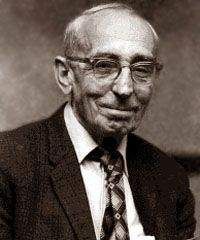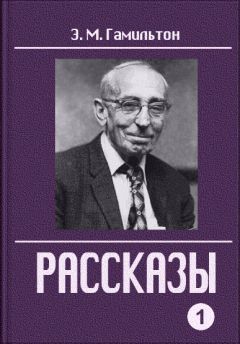Пользователь - o 3b3e7475144cf77c
charge of the company, Johannes would offer to take his job as European representative. Or, if
Robbie preferred, he would see what he could do with the South American trade—he had sold
all sorts of goods there, including military, and had much information about revolutions, past,
present, and to come.
"Sufferance is the badge of all our tribe." So Shylock had spoken, and now these three
wearers of the badge confronted their future, for the most part in silence. Their long siege of
fear had exhausted them, and they still found it hard to believe that they were free, that the
papers which Lanny was carrying would actually have power to get them over the border. They
thought about the dear one they were leaving in the Hitler hell, and the tears would steal down
their cheeks; they wiped them away furtively, having no right to add to the unhappiness of
friends who had done so much for them. They ate the food and drank the bottled drinks
which Lanny put into their hands; a lovely dark-eyed little boy with curly black hair lay still in
his mother's or his grandmother's arms and never gave a whimper of complaint. He was only
three years and as many months old, but already he had learned that he was in a world full of
mysterious awful powers, which for some reason beyond his comprehension meant to harm him.
Sufferance was his badge.
V
They were traveling by way of Hanover and Cologne. The roads were perfect, and three or
four hundred miles was nothing to Lanny; they reached Aachen before nightfall, and then
came the border, and the critical moment—which proved to be anticlimactic. The examination of
baggage and persons for concealed money was usually made as disagreeable as possible for Jews;
but perhaps there was some special mark on their exit permits, or perhaps it was because they
were traveling in an expensive car and under the chaperonage of expensive-looking Americans—
anyhow the questioning was not too severe, and much sooner than anyone had expected the
anxious refugees were signaled to proceed across the line. The inspection of their passports on
the Belgian side was a matter that took only a minute or two; and when the last formality was
completed and the car rolled on through a peaceful countryside that wasn't Nazi, Mama broke
down and wept in the arms of her spouse. She just hadn't been able to believe that it would
happen.
They spent the night in the city of Liege, where Lanny's first duty was to send telegrams to
his mother and father, to Hansi, to Zoltan and Emily and Rick. In the morning they drove on to
Paris; and from there he telephoned to his friend Oberleutnant Furtwaengler in Berlin. What
news was there about Freddi Robin? The officer reported that the young man was nowhere in
the hands of the German authorities; unless by chance he had given a false name when arrested,
something which was often attempted but rarely successful. Lanny said he was quite certain
that Freddi would have no motive for doing this. The Oberleutnant promised to continue the
search, and if anything came of it he would send a telegram to Lanny at his permanent
address, Juan-les-Pins, Cap d'Antibes, Frankreich.
Lanny hung up and reported what he had heard. It meant little, of course. Long ago Lanny
had learned that diplomats lie when it suits their country's purposes, and police and other
officials do the same; among the Nazis, lying in the interest of party and Regierung was an heroic
action. The statement of Göring's aide meant simply that if Göring had Freddi he meant to keep
him. If and when he released him, he would doubtless say that an unfortunate mistake had
been made.
Beauty had gone to London with her husband, as guests of Lady Caillard. She now wired
Lanny to come and see if he could get any hints through Madame. Since it was as easy to go
to New York from England as from France, they decided upon this plan. But first they must
run down to Juan, because Irma couldn't cross the ocean without having at least a glimpse of
her little daughter. Also it would be "nice" for Johannes to see Hansi and Bess. In general it
was "nice" for people to dart here and there like humming-birds, sipping the honey of delight
from whatever flower caught the eye. So next morning the four Robins were again loaded into
the back seat, and in the evening they rolled through the gates of Bienvenu amid a chorus of
delighted cries in English, German, and Yiddish; cries mostly in the treble clef, but with an
undertone in the bass, because of the one sheep which had strayed and might already have
been devoured by the wolves.
VI
Once again the young couple had a debauch of parental emotions; Irma hugged little Frances
against all rules, talked baby-talk which interfered with the maturing of her speech, gave her
foods which were unwholesome, let her stay up too late—in short disarranged all schedules and
spread demoralization. She even talked about taking the whole entourage to Long Island—it
would give such pleasure to the grandmother. Lanny argued against it—the child had
everything that a three-year-old could really appreciate, and now was enjoying the
companionship of a young Robin. Lanny and Irma were planning only a short stay, and why
incur all the added expense, at a time when everything was so uncertain? Lanny was always
trying to economize with the Barnes fortune—overlooking the fact that the only fun in having a
fortune is if you don't economize. Just now he had the idea that they might have to buy Freddi
out of Germany; and who could guess the price?
All right, Irma would stay another day, and then tear herself loose. She would lay many
injunctions upon Bub Smith, the dependable bodyguard, and extract promises from Miss
Severne to cable her at the smallest symptom of malaise. "Do you realize how many millions
this tiny being represents?" Irma didn't say those crude words, but it was the clear implication
of every command, and of the circumstances surrounding Frances Barnes Budd. "The twenty-
three-million-dollar baby" was her newspaper name. The twenty-three-million-dollar baby had set
out on a yachting cruise, and the twenty-three-million-dollar baby had unexpectedly returned to
Bienvenu. All the expenses of maintaining the twenty-three-million-dollar baby might have
been collected in admission fees from tourists who would have flocked to see her if
arrangements had been made.
The men of the family had a conference in Lanny's studio. Johannes hadn't been willing to
tell the ladies what had happened to him in Germany, but he told Hansi and Lanny how he
had been taken to the S.A. barracks in Bremerhaven and there subjected to a long series of
indignities, obviously intended to break his spirit. They had given him strong purgatives, and
amused themselves by forcing him to paddle other prisoners in the same plight, and to be
paddled by them in turn, until all of them were a mess of one another's filth. While they did
this they had to shout: "Heil lieber Reichskanzler!" As a climax they had been forced to dig a
long trench, and were lined up to be shot and dumped into it—so they were told. It was only a
mock execution, but they had died psychologically, and Johannes had by then become so sick with
horror and pain that he had welcomed the end. He said now that he would never be the same
man again; he would go on living because of his family and friends, but the game of making
money would never hold the same zest. He said that, but then, being a clear-sighted man, he
added: "It's a habit, and I suppose I'll go on reacting in the old way; but I can't imagine I'll ever
be happy."
They talked about the problem of the missing one, and what was to be done. Lanny had
promised not to name Hugo Behr, and he didn't, but said that he had a confidential agent at
work, and had given him the Juan address. Hansi was to open all mail that might come from
Germany, and if it contained anything significant, he was to cable it. Johannes said that Hansi
and Bess would have to give up the pleasure of playing music at Red meetings, or doing anything
to advertise their anti-Nazi views. They were still Göring's prisoners; and that was, no doubt, the
way Göring intended it to be.
Hansi was "broke" because he and Bess had been spending all their money on refugees. That,
too, would have to stop. Since it would do no good to sit around and mourn, Hansi decided to
cable his New York agent to arrange a concert tour of the United States in the fall. Meantime,
Irma would open an account for him at her bank in Cannes. "But remember," she said, "no
more Reds and no Red talk!" Irma laying down the law!
All problems thus settled, one bright morning Irma and Lanny, with Papa in the back seat,
set out amid more cries in English, German, and Yiddish—this time not so happy. They arrived
in Paris and had dinner with Zoltan Kertezsi, and in the morning drove to Les Forêts, and told
Emily Chattersworth as much of their story as was permitted. In the afternoon they set out for
Calais, place of bitter memories forevermore. They took the night ferry, drove through England
in the loveliest of all months, and arrived at the Dorchester Hotel amid the gayest of all seasons.
VII
Sir Vincent Caillard, pronounced French-fashion, Ky-yahr, had been one of Zaharoff's
associates from the early days when they had bought Vickers; in the course of the years he had
become one of the richest men in England. Also, strangely enough, he had been a poet, and had
set Blake's Songs of Innocence to music; he had bequeathed these interests to his wife, along
with a huge block of Vickers shares. So it had come about that an elderly, gray-haired lady,
rather small, pale, and insignificant-looking, wielded power in London, and concentrated upon
herself the attention of a swarm of eccentric persons, some of them genuine idealists, more of
them genuine crooks.
She had purchased a large stone church in West Halkin Street and made it over into one of
the strangest homes ever conceived by woman. The gallery of the church had been
continued all around it and divided into bedrooms and bathrooms. The organ had been
retained, and when it was played all the partitions of the rooms seemed to throb. On the ground
floor was a grand reception room with art treasures fit for a museum; among them was a
splendid collection of clocks; a large one struck the quarter-hours, and the front of the clock
opened and a gold and ivory bird came out and sang lustily. Lady Caillard also collected scissors.
Whoever came to that home was at once presented with a copy of the late husband's poems, also a
copy of her ladyship's pamphlet entitled: Sir Vincent Caillard Speaks from the Spirit World. If
you could devise a new kind of praise for either of these volumes it would be equivalent to a
meal-ticket for the rest of your life—or, at any rate, of Lady Caillard's life.
Mr. and Mrs. Dingle and Madame Zyszynski were comfortably ensconced in this former house
of God, and Beauty had had time to collect all the delicious gossip concerning its affairs. Pausing
only for a tribute of grief to Freddi, she opened up to her son a truly thrilling line of
conversation. Lady Caillard had become a convert to spiritualism, and now lived as completely
surrounded by angels and ministers of grace as William Blake in his most mystical hours. She
maintained a troop of mediums, and one of the spirits had directed the invention of a machine
called the "Communigraph," whereby Sir Vincent, called "Vinny," could send messages to his
wife, called "Birdie." The machine had been set up in "The Belfry," as this home was called, and
had been blessed by Archdeacon Wilberforce in a regular service; thereafter the seance room,
known as the "Upper Room," was kept sacred to this one purpose, and at a regular hour every
Wednesday evening Sir Vincent gave his wife a communication which he signed V.B.X., meaning
"Vinnie, Birdie, and a Kiss." These messages were now being compiled into a book entitled A New
Conception of Love.
But, alas, love did not rule unchallenged in these twice-consecrated premises. There was a new
favorite among the mediums, a woman whom the others all hated. Beauty's voice fell to a
whisper as she revealed what huge sums of money this woman had been getting, and how she
had persuaded her ladyship to bequeath her vast fortune to the cause of spiritualism, with the
spirits to control it. Lady Caillard's two children, lacking faith in the other world, wanted their
father's money for themselves, and had quarreled with their mother and been ousted from her
home; they had got lawyers, and had even called in Scotland Yard, which couldn't help. There
was the most awful pother going on!
Into this seething caldron of jealousies and hatreds had come Mabel Blackless, alias Beauty
Budd, alias Madame Detaze, alias Mrs. Dingle, herself an object of many kinds of suspicion; also
her husband, teaching and practicing love for all mankind, including both adventuresses and
defrauded children; also a Polish woman medium with an unspellable name. Beauty, of course,
was looked upon as an interloper and intriguer, Parsifal Dingle's love was hypocrisy, and
Madame's mediumship was an effort to supplant the other possessors of this mysterious gift.
Beauty was as much pleased over all this as a child at a movie melodrama. Her tongue tripped
over itself as she poured out the exciting details. "Really, my dears, I wouldn't be surprised if
somebody tried to poison us!" Her manner gave the impression that she would find that a
delightful adventure.
One of the guests in this strange ex-church was the Grand Officer of the Legion d'Honneur
and Knight Commander of the Bath. He appeared to be failing; his skin had become yellowish
brown, with the texture of parchment; his hands trembled so that he kept them against some
part of his body, and would not attempt to write in the presence of anyone. He had grown
much thinner, which accentuated the prominence of his eagle's beak. As usual, Zaharoff kept
himself out of all sorts of trouble, and took no sides in this family row; his interest was in




